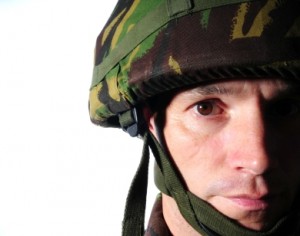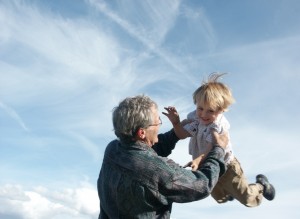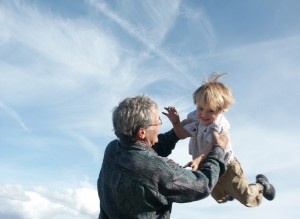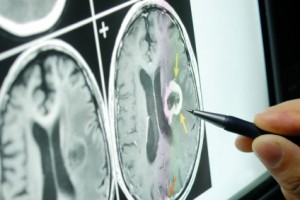 The brain needs a steady supply of oxygen to work properly. A hypoxic-anoxic brain injury is caused by the disruption of the flow of oxygen, which basically starves the brain. People can overcome hypoxic-anoxic brain injuries, but it can be a long road to recovery. Family and friends may become primary caregivers and often need brain injuries advice. TryMunity is a non-profit organization that provides support to individuals and family members dealing with TBIs, and we also strive to raise awareness of this life-changing condition.
The brain needs a steady supply of oxygen to work properly. A hypoxic-anoxic brain injury is caused by the disruption of the flow of oxygen, which basically starves the brain. People can overcome hypoxic-anoxic brain injuries, but it can be a long road to recovery. Family and friends may become primary caregivers and often need brain injuries advice. TryMunity is a non-profit organization that provides support to individuals and family members dealing with TBIs, and we also strive to raise awareness of this life-changing condition.
Seek Out Support
The whole family is impacted when someone suffers a traumatic brain injury. It can be overwhelming for anyone who becomes the designated caregiver. The rehabilitation team, which can include speech, occupational and physical therapists, play an important role in the process. They are frequently a primary source of information and support for the caregiver and family. Involving other family members and friends can aid in alleviating the burden of care on just one person. A good way to facilitate this is to have regular meetings with the entire family and anyone involved in the patient’s recovery.
Be Patient and Positive
Even though it may be very hard, another piece of brain injuries advice is to try to be patient and positive. Recovery can take months or years and no two injuries are the same. There can also be short and long term effects of TBI. It is not uncommon for caregivers and patients to become frustrated at what they believe is slow progress. It is important to have realistic expectations about the recovery process in order to minimize disappointment.
If you are a caregiver of someone suffering from a traumatic brain injury, you are not alone. We at TryMunity encourage you to join our community for support and brain injuries advice on this important topic.


 treatments for traumatic brain injuries are still being studied, but currently, there is no widely available treatment that can reduce the damage or reverse the effects of a brain injury. At TryMunity, we follow ongoing scientific efforts at making the next
treatments for traumatic brain injuries are still being studied, but currently, there is no widely available treatment that can reduce the damage or reverse the effects of a brain injury. At TryMunity, we follow ongoing scientific efforts at making the next  If you have recently suffered from a head injury, it is vital that you are able to recognize the
If you have recently suffered from a head injury, it is vital that you are able to recognize the  The type of
The type of  At TryMunity, we know that babies are incredibly precocious and have a very strong desire for exploration and autonomy. While it is important to allow these characteristics to mature within a child so that they remain thirsty for knowledge and adventure, it is also important to ensure that some preventative measures are taken. While it is not practical to cover your home in bubble wrap, there are a number of things that you can do to help your child avoid suffering from a baby head injury. Traumatic Brain Injury, or
At TryMunity, we know that babies are incredibly precocious and have a very strong desire for exploration and autonomy. While it is important to allow these characteristics to mature within a child so that they remain thirsty for knowledge and adventure, it is also important to ensure that some preventative measures are taken. While it is not practical to cover your home in bubble wrap, there are a number of things that you can do to help your child avoid suffering from a baby head injury. Traumatic Brain Injury, or  If you are suffering from a brain injury, or know someone who is, you are probably aware of the struggles that go along with it. From memory loss to trouble focusing, the list of symptoms can be extensive. However, acquiring a slight and transient brain injury or a
If you are suffering from a brain injury, or know someone who is, you are probably aware of the struggles that go along with it. From memory loss to trouble focusing, the list of symptoms can be extensive. However, acquiring a slight and transient brain injury or a  Unfortunately, concussions are becoming rather commonplace, especially for those involved in contact sports. Since concussions are a type of traumatic brain injury, the TryMunity community offers support and education on the topic. If you have recently suffered a concussion and are still experiencing symptoms even after an extended period of time, you may be dealing with
Unfortunately, concussions are becoming rather commonplace, especially for those involved in contact sports. Since concussions are a type of traumatic brain injury, the TryMunity community offers support and education on the topic. If you have recently suffered a concussion and are still experiencing symptoms even after an extended period of time, you may be dealing with  Spring is around the corner and so are the scooters, skateboards and bikes that young children often love to play with as the weather warms. As children spend more time outside and do more physical activities, it is important to take safety precautions to prevent
Spring is around the corner and so are the scooters, skateboards and bikes that young children often love to play with as the weather warms. As children spend more time outside and do more physical activities, it is important to take safety precautions to prevent 
 Injuries of any kind can be scary and life-altering. Brain injuries are no different, and sometimes have an even greater negative effect. The brain is a critical and sensitive organ in the body which is primarily responsible for other bodily functions and movements. Active children and teens may be at a greater risk for
Injuries of any kind can be scary and life-altering. Brain injuries are no different, and sometimes have an even greater negative effect. The brain is a critical and sensitive organ in the body which is primarily responsible for other bodily functions and movements. Active children and teens may be at a greater risk for 
